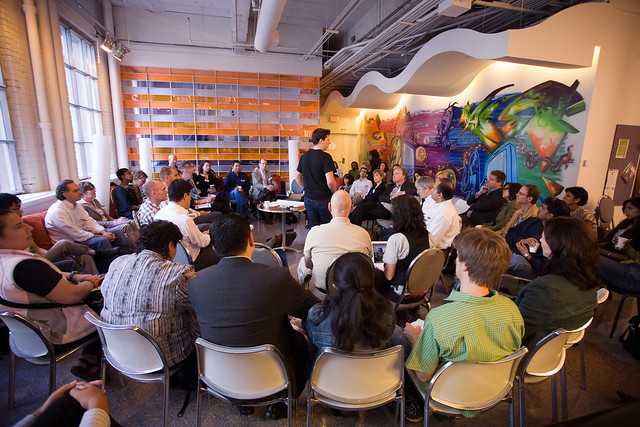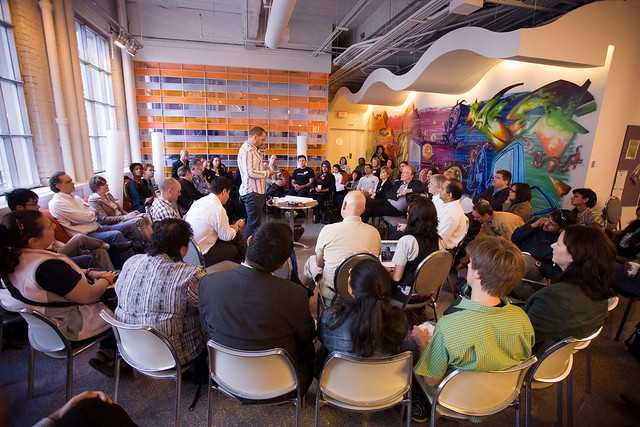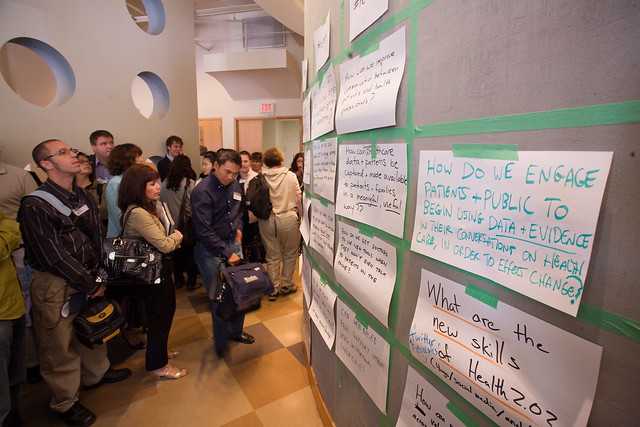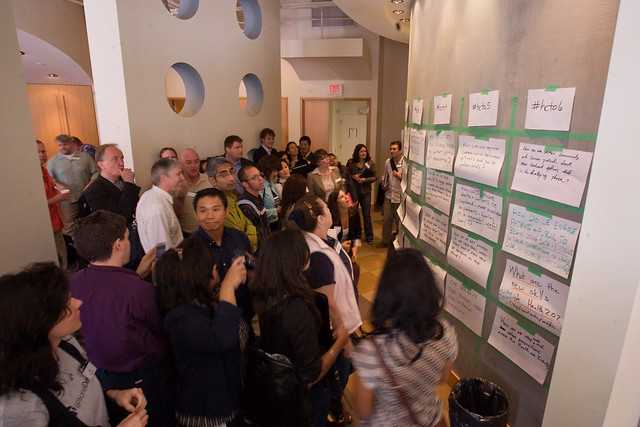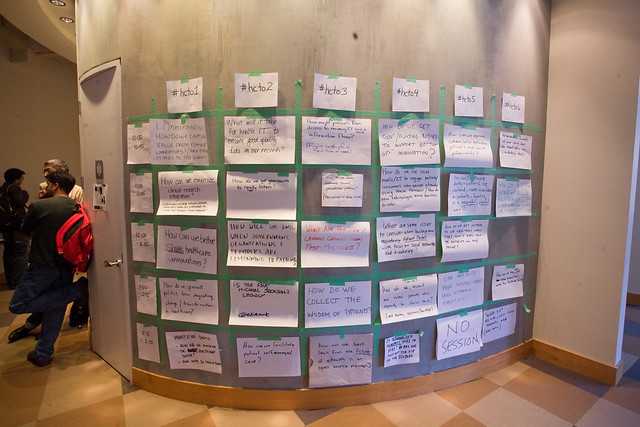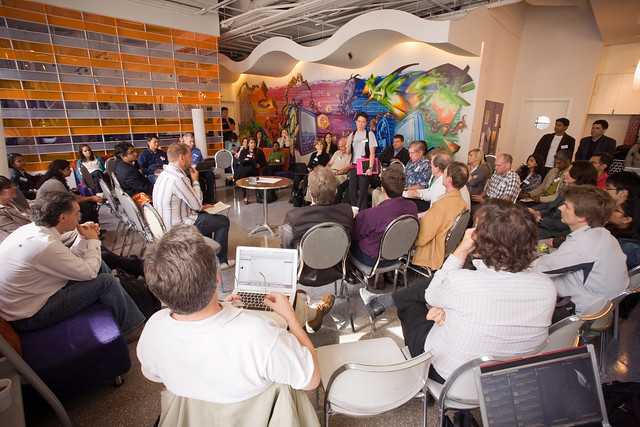HealthCampTO
On any given day in Toronto, there are a handful of loosely-organized events tech available to attend. They’re free or cheap, unstructured and often have the ‘-camp’ suffix. This means they’re “unconferences” right?
Well, not necessarily.
“Unconference” isn’t a catch-all term for any event that’s free and unstructured. Instead, it’s a gathering where the rules are agreed upon by all participants. (Consult the Wikipedia entry for details.)
Apparently this distinction trips up even publications like NOW. In a piece titled “‘Un’ too many”, Josh Errett asks: “has Toronto reached a tipping point with unconferences?” The article’s message: there are way too many unconferences in Toronto and perhaps some consolidation is in order.
But people immediately jumped on his lack of evidence. Ryan Coleman comments:
Wow. Stunning research at work here as approximately NONE of the events you list would be considered, nor advertise themselves, as “unconferences”.
Again, from another comment on the post by Mark Kuznicki:
I will add that you do your readers a disservice by failing to clearly explain what an unconference is. "The idea is that there is no format" is completely wrong. There is a format. An unconference is a self-organizing format where the participants create the content.
So the bottom line: there are lots of casual events in Toronto but not all of them are real unconferences.
Last month, I found myself at one of the real ones: HealthCampTO.
We will use the “unconference” format to create a safe place for contrarians, free thinkers, change agents and idea entrepreneurs. It is the first healthcamp in Canada, modeled after the globally renowned healthcamp movement begun in San Francisco, Boston and Philadelphia.
The invite came courtesy of my friend Rob Fraser. I first met him while working on an article for The Varsity about online communities. After an earlier interview with Daniel Patricio, he introduced me to Rob and his blog, nursingideas.ca, citing it as an example of someone who was using technology to reach out to a broader community beyond the boundaries of a particular school.
Half a year later, Rob is still extremely active in the healthcare community. One of his latest projects was helping organize HealthCamp.
Here’s Rob introducing himself at the start of HealthCamp:
Fellow organizer Carlos Rizo kicked off the day with a tale about Umberto Eco. The scholar has a collection of 30,000 books and when visitors enter his library, most comment on the sheer size of his collection. However, 1% of the time, someone will tell him: “Amazing! All this knowledge — there’s so much more that we have to learn.”
Likewise with healthcare.
Unconference facilitator, Mark Kuznicki laid down some rules:
- Law of two feet: if you don’t like a session, you can leave
- The 1/n rule: don’t try to talk more than 1/n percentage of the time, where n is the number of people in a session
After the introductions, people wrote down issues and questions which they felt should be discussed. The grid below represents the room and time for each topic (also available online):
A full day later, here’s Jen McCabe sharing some her thoughts at the end of the day.
If you want to go through the digital artifacts from the day, you can replay the CoverItLive Feed or check out the various topic pages.

